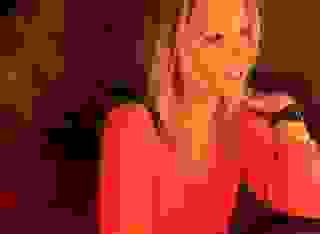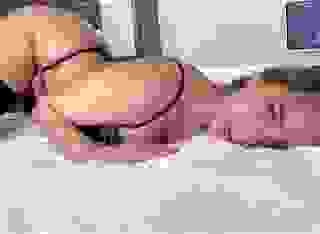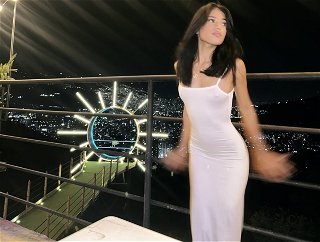Note: You can change font size, font face, and turn on dark mode by clicking the "A" icon tab in the Story Info Box.
You can temporarily switch back to a Classic Literotica® experience during our ongoing public Beta testing. Please consider leaving feedback on issues you experience or suggest improvements.
Click here"You must be able to speak French, you're Canadian."
"No. Like you, I can kind sort of understand it and read it a bit, too, but no—I can't speak it. Many Canadians are bilingual, but not me. Mind you, their first language now-a-days is Urdu or Cantonese, but let's face it, in this internet age, the world is turning English."
"I would say Europe is, in fact I'm certain that was one of the reasons why I was offered a professorship was my fluency in English. Actually, I believe it's more or less their policy now, to offer professorships to academics from abroad. My lectures are in English. I will have some students who will ask for clarification in German, but most of it is in English."
"There you go."
"It's a changing world, and we will probably see the most rapid changes in academia originate in the United States."
"Why would you say that?"
"In the US the cost of tuition is outrageous compared to the rest of the world. Something's got to give, and what I can see happen is that the big lecture halls will be replaced with on-line courses. Students will show up for examinations and that will be it."
"Isn't that kind of watering down higher education?"
"In a very tangible sense, yes. And what will it mean to be a graduate of Oxford or Yale if all you've done is participate in their on-line programme?"
"I don't know. But we can't roll back the technology."
"Precisely, all we can do is embrace it. Frankly, I'm looking forward to my driverless Uber car."
"Mmm. You said that your university has nothing to do with your scientific expedition to find the blue fish."
"That is correct."
"Wouldn't they want the accolades to be able to say 'one of our Professors just discovered a new species of fish?'"
"They'll get to do that anyway, but there will be nothing that I discovered that will be patentable. So, they aren't really interested."
"So, what is it that you teach?" I kept scanning the side of the road looking for the fishing spot.
"Basically, sustainable aquaculture. And the little bit of research that I do is to continue to improve those methods and practices. With our burgeoning population on this watery blue planet, we have to come up with some innovative techniques if we want to keep our collective bellies full. It's just that simple. We can't keep scouring the oceans in search of protein."
"So, what's the answer? Fish farming?"
"Absolutely. Kevin, globally, roughly half the fish we eat is farmed. Every year the per capita consumption of seafood increases. Every year the planet's human population increases. Collectively, we are living longer lives. The capture fisheries in our oceans reached a plateau in the nineteen eighties. Rogue nations, however, are undermining our best efforts to maintain stability of our wild stocks. Aquaculture is clearly the answer. My job is very fundamental. I'm teaching young people, from all over the world, the basics of fish farming science, and in small ways, trying to improve the techniques to maximize growth rates and minimize production costs. Fish, inherently, have the highest feed-conversion efficiency of our food-stock domesticated animals."
"Rose, you really are a remarkable woman."
"Fish today are on the cusp of being the new Chicken of Tomorrow."
"What do you mean?"
"After the second world war, Americans were promised a chicken in every pot. It may have been Roosevelt, I'm not sure. Nevertheless, a contest was held in the United States to find a chicken with more meat on it. They were looking for the Chicken of Tomorrow. Up until then, chicken breeding efforts were focused on egg production. Chicken meat was a secondary consideration. The birds were scrawny and it took years for them to reach maturity."
"Okay."
"The results of that contest were wildly successful. A hybrid chicken was found with a huge breast, and it reached near maturity in an incredible six weeks. Plus, with a little more manipulation they were able to get the feed costs cut in half. A whole industry was born."
"Kentucky Fried Chicken."
"Exactly. The poultry business went from small scale family farms to massive agribusiness operations, each processing a hundred thousand plus birds."
"What was the guy's name that did that?"
"Tyson. In Arkansas."
"That's right."
"Aquaculture, in my view, is about to have its own Chicken of Tomorrow moment. When that particular species of fish is found, even if it has to be genetically manipulated, and then gets coupled with a suitable aquaculture technique in a suitable environment so that growth rates are sufficiently increased and productions costs are lowered, a threshold point -- a breaking point - will be reached wherein it will no longer be economically viable to go out and catch fish."
"Wow, I never thought of that."
"That's how we'll save the oceans. With our pockets. We're not at that breaking point yet, but we are rapidly getting there."
"I had no idea."
"The AquAdvantage Salmon is a perfect example. It's a genetic hybrid that matures twice as fast as regular salmon, and has already been approved by the US Food and Drug Administration for public consumption, and we haven't even tapped into the myriad of possibilities that will be made available through new gene-editing technologies."
"It a brave new world, I guess." And I was just a fucking painter.
"Indeed, it is, Kevin. It certainly is." She was beaming.
"So basically, you're trying to save the planet...while I'm trying to paint a classroom," I added under my breath.
"In an indirect way, yes. Through teaching, mainly." She was frowning at me.
"You are an incredible woman."
"You're trying to flatter me again."
We drove on silently for a few minutes.
"Do you paint houses, too?"
"No, too difficult."
"I'm sorry, I don't understand. How can painting a house be more difficult that painting a school or a restaurant?"
"Crazy lady syndrome. In commercial work, you're mainly dealing with professionals. Contractors, building managers, that sort of thing. In residential work, you're constantly coming across crazy people. 'It's too dark.' 'But that's the colour you picked, ma'am.' 'No, it's not, I wanted this.' 'And that's what you got, Ocean Foam, look it's the same number.' 'That's not what I want, it doesn't match the plates, I'm not paying for what I don't want.' Then the husband calls, 'I know she can be difficult, just give her what she wants.' 'Which is what'?"
"Ha ha! Does that really happen?"
"All the time, or how about 'Look, the line between the ceiling and the wall isn't straight.' 'You're right ma'am, that's because the ceiling isn't straight.' 'You should have prepped it better.' 'What? Rip out the ceiling and put in a new one? I'm the painter'."
"Ha ha!"
"Commercial work, on the other hand, has its drawbacks, too."
"Except for the F.F.&E. guy, sorry; furniture, fixtures and equipment, I'm the last guy in. So, if the project is running a little late, the move-in date doesn't change, but I'm expected to paint everything in no time, using paint that dries instantly. Happens every time. Take the school that we're painting now. Back to school isn't going to be delayed because the paint's not dry. Still, it's steady, honest work."
"Nevertheless, you seem content with it."
"I am, I can't say I love my job, but I don't hate what I do either. At the end of the day, I'm a self-made man. I am my own boss."
"And I admire you for that, I truly do. It doesn't matter if you are a painter or the conductor of a symphony orchestra, you control your own destiny."
"Rose, thank you for understanding that."
"I have a lot of admiration for you. I really do."
"And I of you."
"Plus, I love your penis."
"Tourrette's!"
"I'm sorry."
A pregnant moment passed before I asked, "So the little blue sunfish are going to end up in aquariums?" I slowed down to check out a spot. She noticed instantly and beamed at me with a big tooth-gapped smile in anticipation.
"Nah." And hit the accelerator. There was a frown on her face.
"Blue fish, are they bound for an aquarium?" I asked again.
"Absolutely," Rose perked up.
"And you're going to make money off that?"
"Oh no, I'm not in that business. It's a multi-billion-dollar business, but I'm not involved in any way."
"But you're still into aquarium stuff?"
"No, not at all. I was when I was younger, in my nerd years. I even worked in a pet store. But not anymore, no."
"But you go to the aquarium website, the blog that Amanda's picture was posted."
"Ah. Our benefactor phoned me and asked me to look at the blog posting. Normally I don't visit the site. The whole hobby these days is dominated by red fish. I'm not interested in that at all."
"What kind of fish?"
"Red fish. It's a term, a derogatory one at that. But it's what drives the industry. What it refers to are fish that are selectively bred to bring out recessive characteristics. So, the lowly carp becomes a goldfish with twin tails and bubble eyes. The discus, itself a beautiful Amazonian fish, now comes in a variety of colours. The Asian arowana - Scleropages formosus - is probably the world's most coveted fish, basically because it looks like a dragon." She paused for a moment, "I think you'll understand who that will appeal to. The arowanas come in a variety of colours, the most expensive being gold, deep red and now, albino. They can be worth hundreds of thousands of dollars. Koi, if it is fortunate enough to have a perfect bright red circle on top of its head on an otherwise white body, would be worth over a million, for sure, because it resembles the Japanese flag. That's what red fish means."
"A million bucks for a pet fish?" I asked incredulously.
"Kevin, fish nowadays are chemically treated to change their colour and are subject to corrective surgery."
"What?"
"Absolutely true. It's big business."
"That's crazy."
"There are other trends in the aquarium world, though. One is the biotope aquarium, which is basically putting the fish in the aquarium and recreating it's natural habitat, ie. flora and fauna together. So, in that practice you wouldn't put an African cichlid in a tank with a North American lily plant."
"Okay, I can see that."
"Another trend is the so-called nature aquarium, which is basically an extension of a Japanese Zen garden traditions. Mountains or valleys are created, sometimes with small grasses, or a waterfall effect of falling sand will be created, or rocks will be arranged in a perfect golden triangle alignment. Then little fish are added, almost as an afterthought, just to give it some ambiance."
She held her hands out, palms facing, just thumb and finger tips touching and spread, "Say it with me Kevin...Ohmm..."
"Ohmmm..."
We both broke out laughing.
We drove on silently for a few minutes. Rose was watching the scenery. To me, it was just Northern Ontario highway. Still, I kept looking for the spot.
"What's at Silver Dollar?" Rose asked as she checked the map.
"Not much if I remember. A general store, probably a gas pump, a couple of buildings. Chances are a liquor store and post office, too. I don't think we stopped there."
After about an hour and a half out of Sioux Lookout, we suddenly came to the T-junction with highway 599 and the Silver Dollar general store right in front of us. A couple of bikers had parked just in front.
"Funny," I said, "it's not quite how I remembered it, but I was right about the liquor store." I turned right. The road sign indicated Ignace 61 (km).
"What do you mean?"
"You didn't see the sign outside? LCBO. Liquor Control Board of Ontario. It's a provincial government run monopoly. They are the single largest purchaser of alcohol in the world."
"Do we have any booze?"
"Yup, all covered. We've got beer, wine, a bottle of Canadian rye whiskey, made with actual rye, and a bottle of shampers."
In her dulcet toned, slightly accented voice she asked "Do you mean champagne?"
"Yes."
Her face showed a little confusion.
"For when we find the blue fish. I think that would be appropriate, don't you?"
Her whole face gleamed with a bright smile.
"You are lovely," I stated as I maneuvered the truck through a fairly tight turn. She leaned over to my side and grasped my right bicep with both hands. She tried to reach up to kiss me on the cheek with puckered lips, but the seat-belt stopped her cold. Fail. I had to laugh.
I remembered driving along this slightly nicer, double lane roadway.
"Whoa," I said as I stepped onto the brake and pulled to the side, "now this is familiar," I was gazing out through the windows, "we definitely stopped here."
The highway crossed a creek. Crystal River according to the sign. There were a number of large corrugated steel culverts passing under the low bridge. I could even make out where we parked.
"Are you sure?" Rose asked excitedly as I maneuvered the pick-up truck into the parking spot.
"Absolutely," I answered as put the transmission into park and turned off the engine. "It may not be where the blue sunfish was caught, but we definitely stopped here. I remember casting the Barbie fishing rod right from there," I said pointing, "and letting the current carry the bait."
Rose was checking one of her maps, "How's your coffee?"
"Gone, how about yours?"
She took a small sip from obviously the bottom of the cup, "Cold."
"Hmm."
"We stepped out of cab into the warm afternoon air. Everything was still, except for a few bugs lingering around. Rose stepped up to me, wrapped her arm around my waist and smiled. "It's beautiful here."
"I agree," I answered as I spun her around and tilted her smiling face up to mine with my index finger, "and so are you." My lips landed on her very receptive lips. What a sweet kiss. What a sweet moment.
"Shall we try to catch a fish?" I asked.
Smiling she answered, "You do that and I'll try to figure out exactly where we are."
"Okay."
As I unpacked my fishing gear from the back of the truck, several thoughts were joining together: we'd been on the road for less than two hours, Ignace was probably forty-five minutes away, the park less than that, and Rose's coffee was cold.
Two ultralight spinning rods were set up with barbless hooks on monofilament line at the end of wire leaders, each with a small weight, and further up, small bobbers. Each barbless hook had one half of a yucky worm threaded onto it. Rose watched the whole operation with disdain. I had to stifle my laughter.
I showed Rose how to cast, which she did more or less successfully. The slight current carried our bobbers away towards a patch of reeds. I ensured that enough line was let out on both rods to position the bait in, what seemed to me, the most likely fish spot.
My bobber plunged down slightly, I set the barbless hook as much as I could and then traded rods with Rose who was beaming from ear to ear. She quickly reeled in a small rock bass.
"Congratulations Rose, your second ever fish caught on a line."
"Wow."
We continued to fish catching only rock bass and one small pike, even though we tried casting to different locations. I even tried a few small lures. Nothing.
All the time something was gnawing at me. Something didn't add up. I didn't actually remember the single lane highway we were just on; I didn't really see too many places next to water where the cube van could easily be parked, and I didn't remember that view of the store at Silver Dollar, but we did pass it. Ten years ago, our day trip would have been more than two or three hours off from one camping spot to the next camping spot; that would have meant that we would have spent most of the day in the park. And Rose's coffee was cold.
"Rose, do you have your laptop with you?"
"Yeah, why?"
"Do you remember the two, actually three photographs?"
"Yes."
"What was the time difference between the blue sunfish photos and the next one at Sandbar Lake?"
After a few minutes Rose answered from the truck's cab, "Five hours, forty-three minutes."
"Rose, I fucked up."
"What do you mean? How?"
"I fucked up in Vienna."
"I don't understand."
"I told you, the weak link is my memory." I studied the map for a moment. "Marcie, Amanda and me didn't take highway 642 out of Sioux Lookout.
Her lips were drooping, she was perplexed.
I continued, "We had to have gone north east past the airport along highway 516, up to Savant Lake here, and then down the highway we're now on past Silver Dollar. I'm sorry." Overall, the highways were like a big capital A with the TransCanada as an underline to the A, with Sioux Lookout on the west side of the crossing line, Silver Dollar on the east, and Savant Lake at the top of the letter. "Now it makes more sense, Rose. I'm sorry. I'm certain of it now. We made a day's outing out of this little side trip. After all, we had made it back to Ontario. We have to go back."
Rose studied the map for a few moments. "Okay, so we'll just head back up the highway to Savant Lake."
The fishing rods got stowed back and we headed back to Sioux Lookout, via Silver Dollar and Savant Lake, looking for the magic fishing spot.
After a few minutes I said "Okay, so tell me about the blue fish."
She gazed out the front windshield at an angle just enough to prevent me from making eye contact. "The Lepomis family is native to North America, although the Pumpkinseed is now found in Eurasia and in Africa, and I believe in South America, too... and is considered an invasive species. In North America there are, I can't remember exactly, maybe a dozen, maybe sixteen different Lepomis sunfish species. They are also closely related to what are popularly called rock bass."
"Why did you specialize in fresh-water fish?"
"They're more accessible and more varied. Besides, I get sea sick."
I laughed. She turned her head avoiding eye contact, paused, took a breath, then almost
"Seriously, for those of us who are into marine biology in the ocean, they get to spend some quality time in a big boat. And if they want to find new species, they need to scour the Twilight Zone and the Midnight Zone."
"Now you're pulling my leg, the Twilight Zone?"
She laughed. "That's the actual term, well the popular term. In the oceans, the Sunlight Zone is from the surface down to 200 meters. Below that, down to a thousand meters is the Twilight Zone where probably ninety percent of the fish have light emitting photophores, below that in the Midnight Zone where no light penetrates, down to four thousand meters, most of the light is produced by luminous bacteria living in a symbiotic relationship with the fish. Below that is the Abyss and then the Trenches. We're just now learning what goes on at those depths. It's fascinating stuff, to be sure, but it's not for me. I prefer the greater diversity found amongst the fresh-water fishes."
"Greater diversity? What do you mean?"
We passed the Silver Dollar store on the right.
"Are you ready for your biology lesson?"
"Keep it simple please, Professor."
"There are more than thirty-three thousand different species of fish identified so far. New ones are described at a rate of roughly three hundred and fifty per year, or basically, one every day. Of those thirty-three thousand species of fish, roughly half are fresh water."
"Okay."
"Now, here's the thing. Of all the water that's on our planet, only about two and a half percent is fresh water."
"Okay, makes sense, the oceans are huge, and deep."
"Of that, by far most of the fresh water is tied up in the polar ice caps, in glaciers and in underground aquifers, so that the fresh water that is all of the lakes, rivers, streams, ponds, swamps, etc. combined around the globe is basically one one-hundredth of one percent of all the water on this planet. That's it. And in that tiny fraction of water, we find half of the known species of fish."








